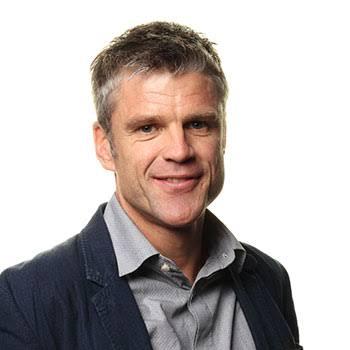Grant title: Preventing functional disability in breast cancer survivors – a randomised controlled exercise intervention
We are a young and enthusiastic research team with niche skills. We are extremely grateful for the support from the WCRF for our study
– Andre La Gerche
Background
Breast cancer treatment is potentially lifesaving but is also associated with long-term health consequences that can include a decrease in heart function and reduction in fitness and functional capacity (ability to perform simple activities of daily living). It is important to detect changes at an early stage, as early interventions with medications and exercise can prevent deterioration.
Unfortunately, current tests are poor at identifying early problems and those who will suffer side-effects. Our current tests tend to identify heart damage once it has already happened and is non-reversible.
Our group has recently completed a pilot study in 28 women with early stage breast cancer. We found that chemotherapy caused a 16 per cent reduction in peak oxygen uptake (the body’s ability to use oxygen during exercise). This reduction is the equivalent of what we would expect with 16 years of normal ageing but occurred over only four months of chemotherapy treatment.
Fortunately, exercise training performed at the same time as treatment prevented most of the decline.
Aims and objectives
We aimed to assess whether exercise training could reduce reductions in heart function and decreases in fitness associated with chemotherapy in breast cancer patients.
Methods
We conducted a 12-month trial with 104 patients recently diagnosed with breast cancer who were scheduled for chemotherapy. Half of the patients were randomly assigned to complete a supervised exercise programme and half were randomised to usual care.
Results
We found that:
- 12-months of individualised, multi-component exercise training markedly improves cardiorespiratory fitness, cardiac reserve and prevents functional disability;
- Current standard-of-care measures of heart muscle function during chemotherapy were insensitive to large changes in cardiorespiratory fitness and disability;
- Breast cancer patients scheduled for cardiotoxic chemotherapy should be prescribed a supervised, individualised, multi-component exercise programme as a means of attenuating reductions in fitness and heart function;
- Exercise testing provides additional diagnostic and functional prognostication as compared with standard-of- care resting measures in breast cancer patients.
Conclusions
The results show the critical role of exercise in mitigating the negative cardiovascular impacts of chemotherapy in breast cancer patients. Individualised, supervised, multicomponent exercise programmes not only enhance cardiorespiratory fitness and cardiac reserve but also prevent functional decline, even in the presence of cardiotoxic treatments. The findings advocate for a shift in standard care practices towards incorporating exercise testing and training as both diagnostic tools and therapeutic strategies during cancer treatment.
Impact
This is the first randomised clinical trial to prove that exercise training can preserve heart function during chemotherapy. It is likely that this evidence will inform future guidelines, given that supervised exercise training is currently the only therapy to be proven in a randomised controlled trial to reduce the rate of cardiotoxicity and functional decline.



